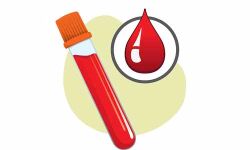- Home
- Medical news & Guidelines
- Anesthesiology
- Cardiology and CTVS
- Critical Care
- Dentistry
- Dermatology
- Diabetes and Endocrinology
- ENT
- Gastroenterology
- Medicine
- Nephrology
- Neurology
- Obstretics-Gynaecology
- Oncology
- Ophthalmology
- Orthopaedics
- Pediatrics-Neonatology
- Psychiatry
- Pulmonology
- Radiology
- Surgery
- Urology
- Laboratory Medicine
- Diet
- Nursing
- Paramedical
- Physiotherapy
- Health news
- Fact Check
- Bone Health Fact Check
- Brain Health Fact Check
- Cancer Related Fact Check
- Child Care Fact Check
- Dental and oral health fact check
- Diabetes and metabolic health fact check
- Diet and Nutrition Fact Check
- Eye and ENT Care Fact Check
- Fitness fact check
- Gut health fact check
- Heart health fact check
- Kidney health fact check
- Medical education fact check
- Men's health fact check
- Respiratory fact check
- Skin and hair care fact check
- Vaccine and Immunization fact check
- Women's health fact check
- AYUSH
- State News
- Andaman and Nicobar Islands
- Andhra Pradesh
- Arunachal Pradesh
- Assam
- Bihar
- Chandigarh
- Chattisgarh
- Dadra and Nagar Haveli
- Daman and Diu
- Delhi
- Goa
- Gujarat
- Haryana
- Himachal Pradesh
- Jammu & Kashmir
- Jharkhand
- Karnataka
- Kerala
- Ladakh
- Lakshadweep
- Madhya Pradesh
- Maharashtra
- Manipur
- Meghalaya
- Mizoram
- Nagaland
- Odisha
- Puducherry
- Punjab
- Rajasthan
- Sikkim
- Tamil Nadu
- Telangana
- Tripura
- Uttar Pradesh
- Uttrakhand
- West Bengal
- Medical Education
- Industry
Pune scientists develop faster technique to generate RBCs outside body

They have found that the process can be speeded up by adding a very low concentration of a small protein molecule called `transforming growth factor β1' (TGF-β1), along with a hormone called `erythropoietin' (EPO), to the growth medium. They could cut down the processing time by three days.
Pune: Transfusion of red blood cells (RBCs) is a life-saving treatment for numerous conditions such as severe anaemia, injury-related trauma, supportive care in cardiovascular surgery, transplant surgery, pregnancy-related complications, solid malignancies and blood-related cancers.
However, blood banks, particularly in developing countries, often face a severe shortage of whole blood as well as components of blood like red blood cells.
Researchers across the world are exploring possibilities to generate RBCs outside the body (in vitro) from haematopoietic stem cells (HSCs). These HSCs have the capability to give rise to the different types of cells found in the blood. Various groups have been able to produce RBCs in the laboratory from HSCs. However, the process takes a long time - around twenty-one days. The resources required to grow cells in the laboratory over such a long duration can be very expensive for the generation of RBCs on a large scale for clinical purposes.
A team of researchers led by Dr L. S. Limaye, ex-scientist at the Department of Biotechnology's National Centre for Cell Science (NCCS) at Pune have found a way to tackle the issue.
They have found that the process can be speeded up by adding a very low concentration of a small protein molecule called `transforming growth factor β1' (TGF-β1), along with a hormone called `erythropoietin' (EPO), to the growth medium. They could cut down the processing time by three days.
image credit: Indian Science Wire
Dr Limaye noted that several tests to assess the quality of the cells formed, and examination of many of their characteristics, including physical appearance, revealed that the RBCs formed using this procedure were normal.
The findings are worthy of further exploration. Additional investigations based on the insights gained from these studies could help assess the relevance of using this approach for blood transfusions in the future. The researchers have published a report on their work in the journal, `Stem Cell Research and Therapy'. (India Science Wire)
Read Also: Vitamin D reduces blood sugar and body fat in obese Indian women: DFI Study
Medical Dialogues Bureau consists of a team of passionate medical/scientific writers, led by doctors and healthcare researchers. Our team efforts to bring you updated and timely news about the important happenings of the medical and healthcare sector. Our editorial team can be reached at editorial@medicaldialogues.in.
Dr Kamal Kant Kohli-MBBS, DTCD- a chest specialist with more than 30 years of practice and a flair for writing clinical articles, Dr Kamal Kant Kohli joined Medical Dialogues as a Chief Editor of Medical News. Besides writing articles, as an editor, he proofreads and verifies all the medical content published on Medical Dialogues including those coming from journals, studies,medical conferences,guidelines etc. Email: drkohli@medicaldialogues.in. Contact no. 011-43720751


